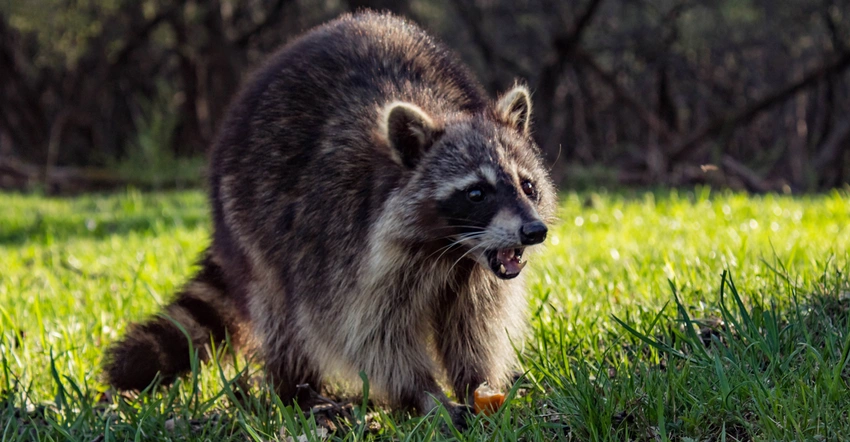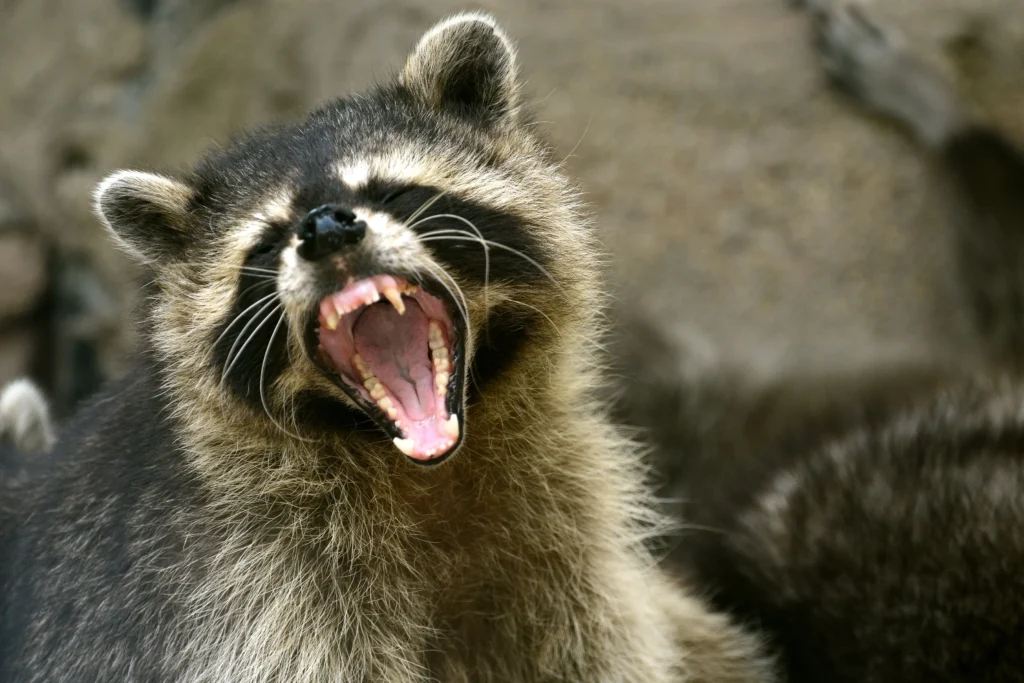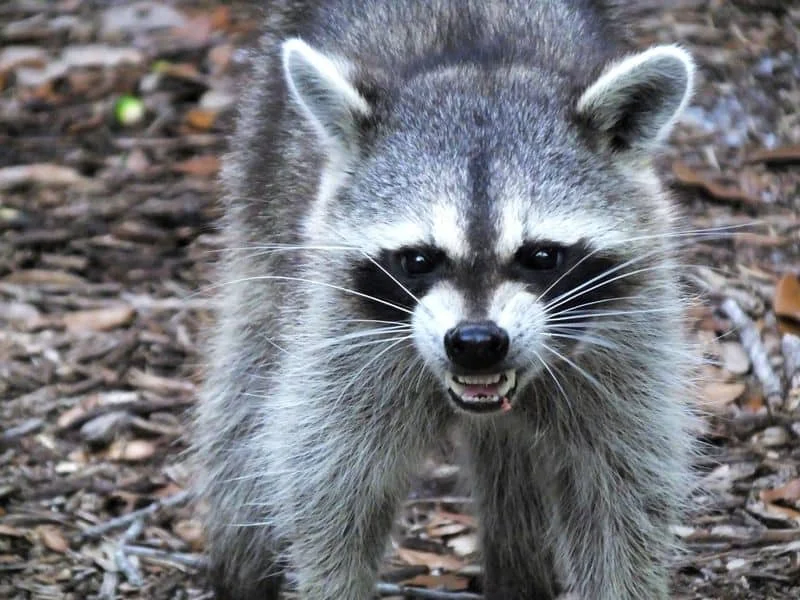
Raccoons are among the most recognizable nocturnal animals in North America, often seen rummaging through trash cans or scurrying across suburban yards. Their distinctive mask-like facial markings and ringed tails have made them a subject of curiosity and concern, particularly regarding their interactions with humans. While it is rare, the question arises: do raccoons attack humans at night?
To address this concern, it's essential to understand that raccoons, by nature, are not aggressive toward humans. They typically avoid confrontation unless cornered, threatened, or protecting their young. However, instances of raccoons attacking humans at night can occur, especially in areas where they have become habituated to human presence and associate people with easy access to food. This can lead to bold behavior, but actual attacks are uncommon and usually a result of the animal feeling threatened or being sick, such as with rabies, which can alter its natural behavior.

Raccoons are primarily nocturnal creatures, which means they are most active during the night. Their behavior is driven by the search for food, and human habitats often provide an abundance of easy-to-access resources. Raccoons are omnivores, feeding on a variety of foods, from fruits and insects to garbage and pet food left outdoors.
So, will a raccoon attack you? Despite their curious nature, raccoons are generally timid animals and avoid direct interaction with humans. However, certain circumstances can lead to unexpected encounters. Understanding these situations is crucial to minimizing the risk of conflict.

Protection of Young: Female raccoons are fiercely protective of their kits. If a human inadvertently comes close to a den, especially at night when visibility is low, the mother raccoon may exhibit aggressive behavior as a defense mechanism.
Illness and Rabies: A raccoon that is unusually aggressive or appears disoriented might be suffering from an illness, such as rabies. Rabies is a viral disease that affects the brain and can cause erratic behavior in mammals, including raccoons.
Habituation to Humans: Raccoons that have become accustomed to human presence due to frequent feeding or accessible food sources may lose their natural fear of humans. This can lead to bold behavior, including approaching people or entering homes through pet doors.

To reduce the likelihood of a nighttime encounter with a raccoon, several proactive steps can be taken:
Secure Trash and Food Sources: Ensure that garbage cans have tightly fitting lids and are secured to prevent tipping. Avoid leaving pet food outside overnight and keep barbecue grills clean and covered.
Remove Attractants: Eliminate accessible water sources, such as bird baths or pet water bowls, and keep yards free of fallen fruits or nuts that might attract raccoons.
Use Deterrents: Motion-activated lights or sprinklers can startle raccoons and discourage them from entering your property. Ultrasonic repellents and the strategic use of ammonia-soaked rags can also be effective.
Seal Entry Points: Inspect your home for any openings that raccoons could use to gain entry, such as broken vents, loose siding, or open chimneys. Use sturdy materials to block these access points.
While direct attacks on humans are rare, raccoons can pose health risks through the spread of diseases such as rabies and leptospirosis. It is important to avoid handling raccoons or their waste without protective gloves and to consult a healthcare provider if bitten or scratched.
In the event of a raccoon bite, immediate medical attention is necessary to assess the need for rabies vaccination. Additionally, local wildlife control should be notified to safely remove the animal and reduce the risk of further incidents.

Experts in wildlife behavior emphasize the importance of understanding raccoon activity patterns to mitigate potential risks. Raccoons are highly intelligent and adaptable animals, capable of solving complex problems to access food. This intelligence, combined with their dexterous paws, allows them to open jars, unlatch gates, and even manipulate door handles in their quest for food.
This adaptability not only demonstrates their intelligence but also underscores the necessity for homeowners to secure their properties effectively. Since raccoons can navigate complex environments and overcome obstacles, simple measures like loosely covered trash bins or unsecured pet food can attract these clever creatures. Experts suggest using robust, raccoon-proof containers and reinforcing potential entry points to homes, such as attics or basements, to prevent these nocturnal visitors from seeking shelter or sustenance in human dwellings.
Education plays a critical role in preventing conflicts between humans and raccoons. Community awareness programs can help residents understand the importance of not feeding wildlife, securing their homes, and respecting the natural habits of these animals. Such programs can significantly reduce the incidents of raccoon-human interactions, particularly at night when these animals are most active.
It is important to be aware of local and federal laws regarding wildlife. In many regions, raccoons are protected under wildlife conservation acts, which regulate their capture and relocation. Understanding these laws helps ensure that any actions taken against problematic raccoons are legal and ethical.
Ultimately, our goal should be to create a harmonious environment where humans and wildlife, including raccoons, can coexist peacefully. This involves not only individual actions but also community-wide efforts to preserve natural habitats and educate the public about the importance of wildlife conservation.
By taking these steps, we can minimize the risk of raccoon attacks on humans at night and foster a deeper appreciation for these fascinating nocturnal creatures. With understanding, precaution, and respect, we can ensure a safer and more sustainable future for all.
There are times when professional wildlife removal services are necessary. Suppose a raccoon exhibits aggressive behavior, appears sick or injured, or has established a den within a home or business. In that case, contacting a licensed wildlife control operator like Critter Stop is advisable. Critter Stop is renowned for its humane approach to wildlife removal and boasts a fantastic reputation with glowing customer reviews. We are committed to providing high-quality work and exceptional customer service, making them the ideal choice for your raccoon removal needs. Contact us at (214) 234-2616 to get a raccoon free property!
Visit our Critter Library and learn more about our furry friends